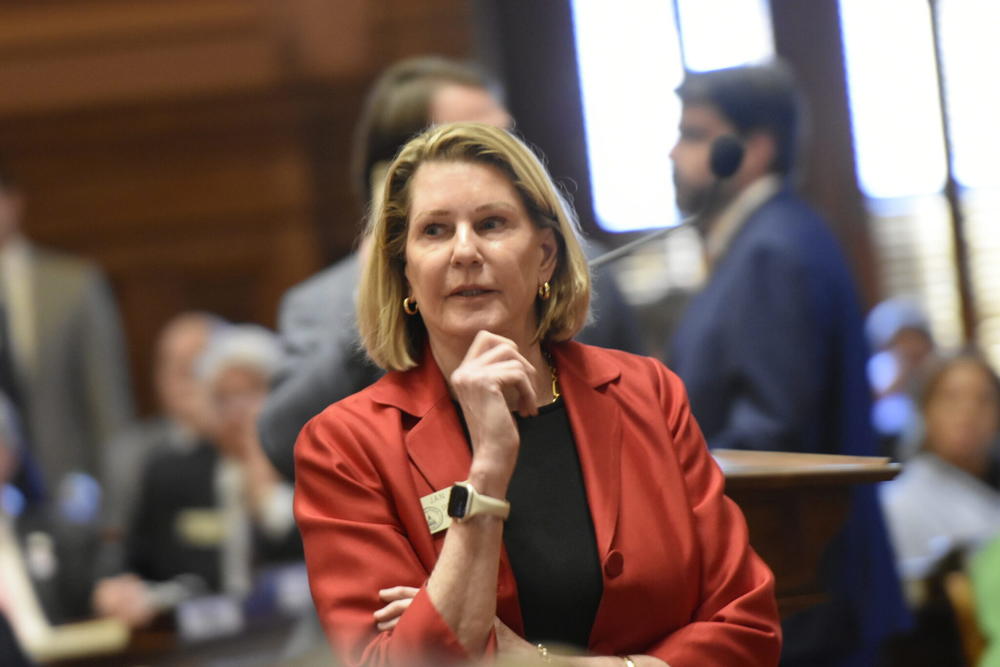
Caption
Milton Republican Rep. Jan Jones helped shepherd paid parental leave legislation through the General Assembly in 2024. Jones said the new policy will provide greater relief to mothers who often sacrifice vacation and sick time to take care of their children.
Credit: Ross Williams / Georgia Recorder

